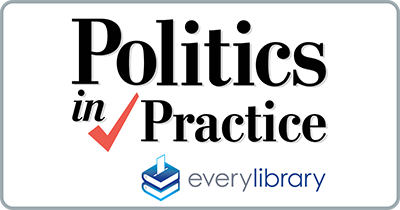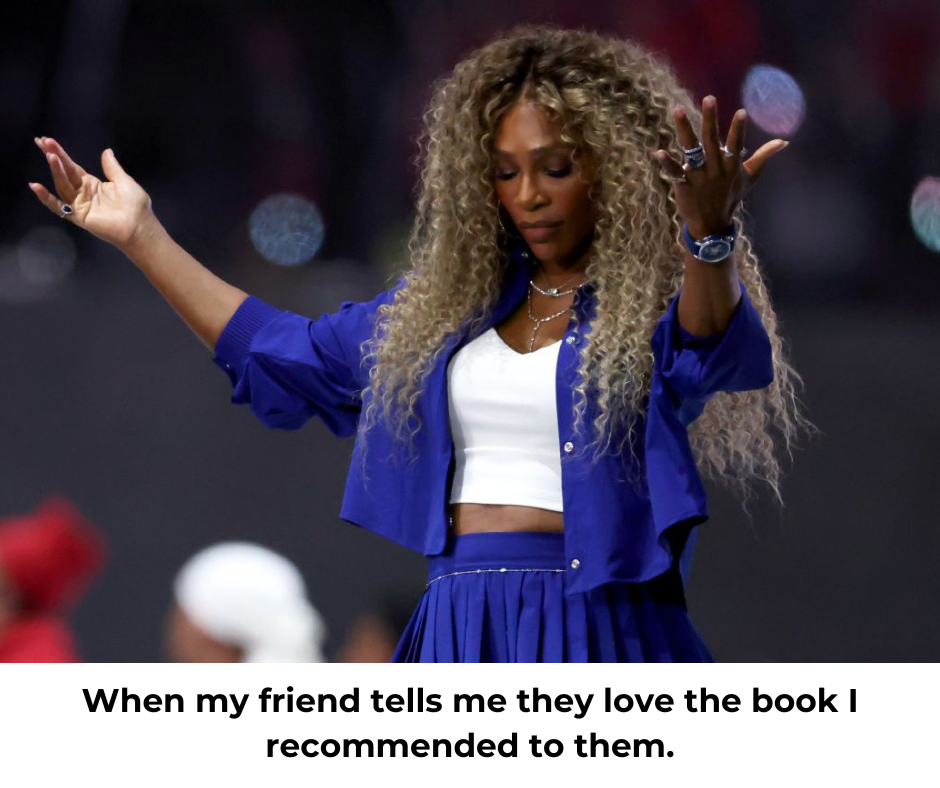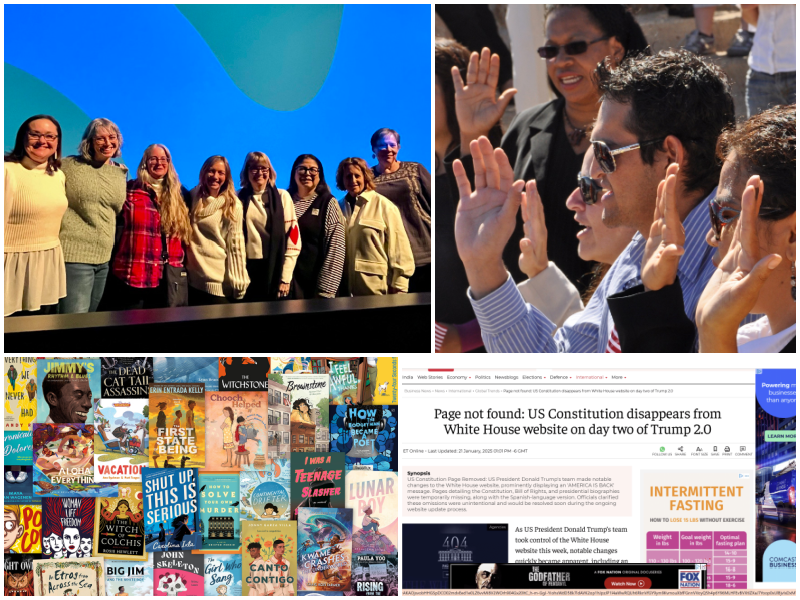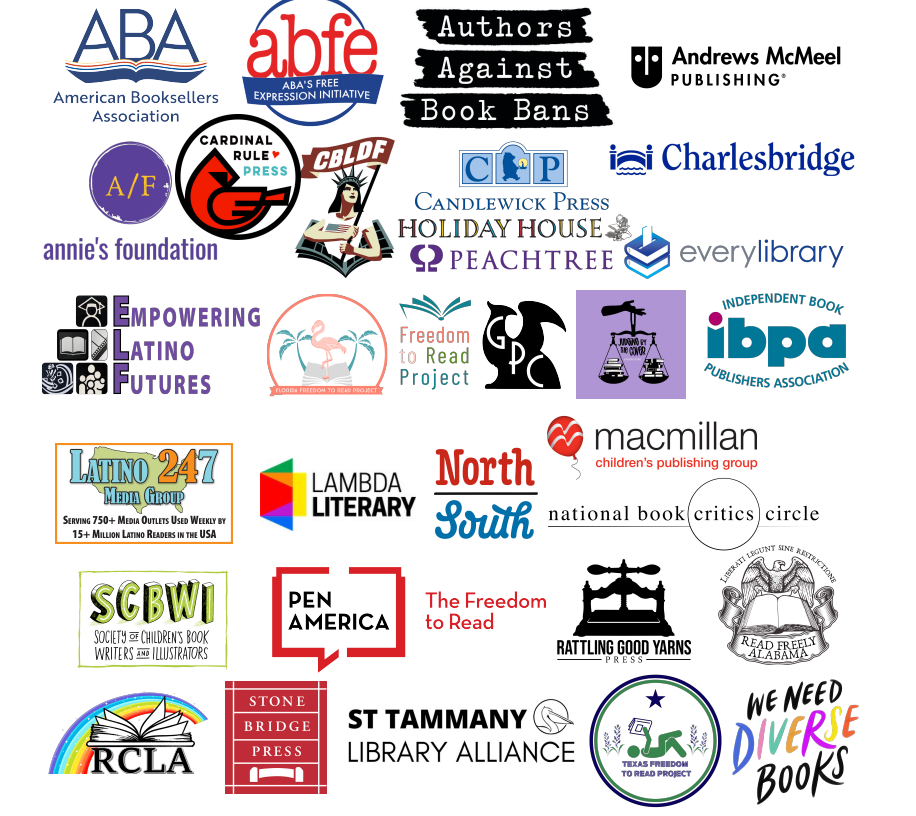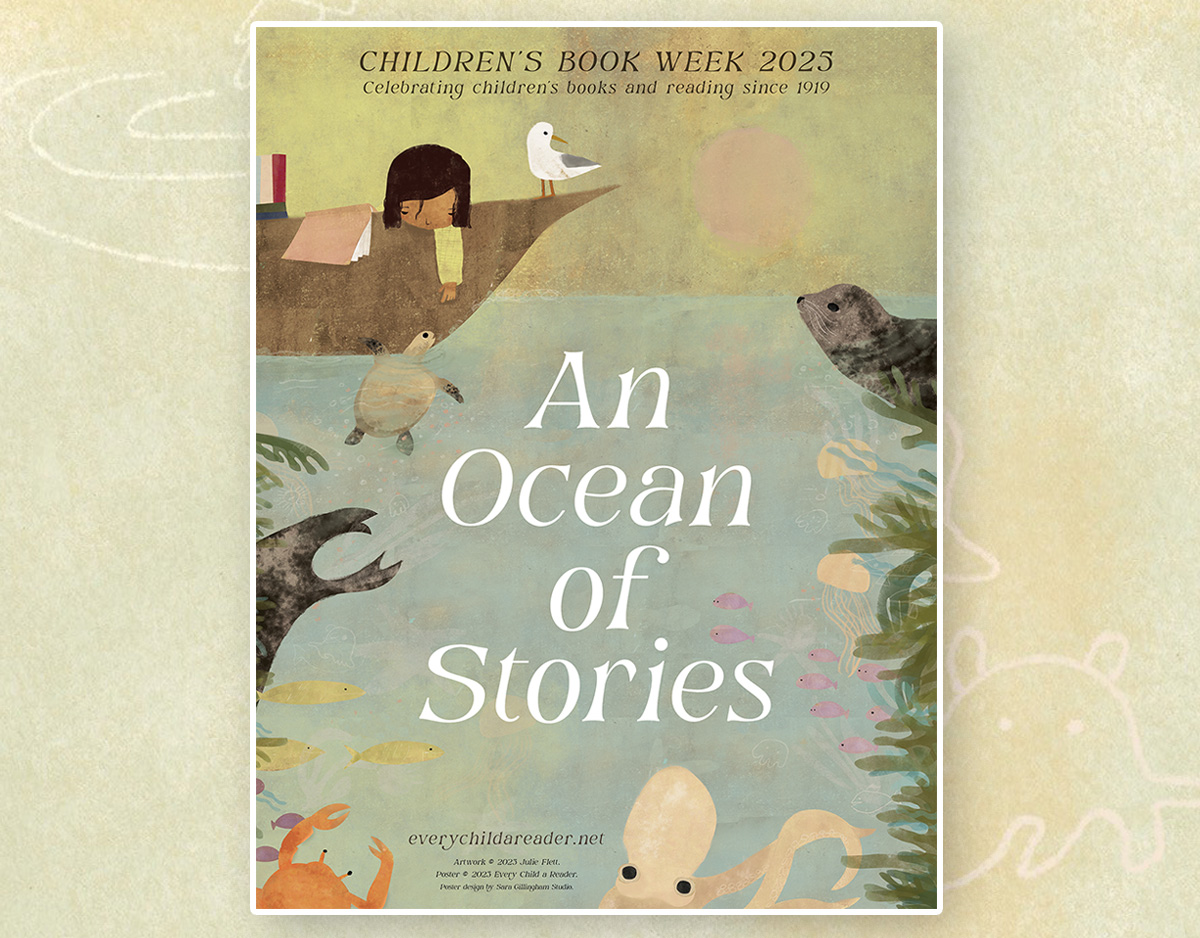Fighting Public School Book Bans with the Civil Rights Act
By Guest Blogger Catherine E. Ferri*
When we think about fighting book bans, we normally look to the First Amendment. It protects our right to freedom of speech and of the press,[i] and our right to information, which is an “inherent corollary” of the First Amendment rights to speech and freedom of the press.[ii] Essentially, the First Amendment protects our right to read– it is why book bans violate the First Amendment. In the more conservative states, book bans are more and more frequently efforts to remove LGBTQ+ stories, books on critical race theory, and books by predominantly BIPOC authors.
Public school students have a more limited right to information because the state government retains what is known as “educational discretion”– the right to decide how to educate its students, including decisions about what students can say during school events or on campus, and to control what students read.[iii] Educational discretion allows school officials to get away with book bans that might otherwise offend the First Amendment. Whereas a public library’s book ban must be both reasonable and viewpoint-neutral,[iv] in Board of Education, Island Trees Union Free School District No. 26 v. Pico, or “Pico,” the Supreme Court afforded public schools more leeway.[v] Schools cannot remove library books because they dislike the ideas or to “prescribe what shall be orthodox in politics, nationalism, religion, or other matters of opinion.”[vi] However, schools retain broad authority to remove books that are “pervasively vulgar” or “educationally unsuitable.”[vii] More simply, public school book banning jurisprudence gives more conservative school districts and more conservative reviewing courts leeway to uphold bans provided the ban is not overtly prescribing some political orthodoxy by couching the ban in educational discretion.
In today’s book banning culture, books that are “pervasively vulgar” are most often stories about LGBTQ+ individuals, books that are “educationally unsuitable” are frequently books on critical race theory or by authors of color.[viii] While it is true that it is likely that these bans are motivated by a desire to suppress political viewpoints,[ix] viewpoint discrimination is often difficult to prove.
However, the First Amendment may not be the only method to protect students’ right to read and prevent book bans.[x] In 1964, Congress passed the Civil Rights Act, and amended it with what are known as the “Education Amendments” in 1972. Important for public school students’ purposes are Title VI and Title IX. Title VI provides that programs or activities receiving federal financial assistance cannot discriminate against people on the basis of race, color, or national origin.[xi] Title IX prohibits education programs or activities receiving federal financial assistance from discriminating on the basis of sex.[xii]
So what do these statutes offer students when they seek information in banned books? In certain situations, proceeding through the Office for Civil Rights (“OCR”), rather than as a First Amendment claim, could offer a potentially more straightforward path to restoring the challenged books than wading through Pico’s muddy holdings and the unclear nature of educational discretion. Basically, these specific provisions could cover books on two particularly contentious topics– books on race, critical race theory, or by racially diverse authors under Title VI and LGBTQ+ stories under Title IX.
Indeed, the strategy has already proven effective. In May of 2023, Forsyth County School District in Georgia entered into a resolution agreement with the U.S. Department of Education’s Office for Civil Rights (“OCR”)[xiii] following concerns that Forsyth County had created a racially and sexually hostile environment by banning books featuring LGBTQ+ stories and books that were allegedly “sexually explicit,” which predominantly featured BIPOC characters or authors.[xiv] This led to concerns that the “book screening process may have created a hostile environment for students, yet the District’s responsive steps related to the book screening process were not designed to, and were insufficient, to ameliorate any resultant racially and sexually hostile environment.”[xv]
Following OCR’s investigation of the complaints, the school district entered into a resolution with OCR to implement a number of measures, including issuing a statement explaining the book removal process, offering support to students who may have been impacted, administer a climate survey to the student body to understand additional potential steps, and to implement ongoing monitoring until OCR deemed that the district was in compliance with the Civil Rights Act.
While the standard for evaluating these bans are unclear, some legal analysts have concluded that OCR has signaled that impact is more important than intent for these kinds of enforcement actions.[xvi] In other words, it does not appear that OCR would require that a challenger show intent, and is rather more concerned with discriminatory impacts. Forsyth County represents the first action of its kind, and its impact is unclear– OCR concluded that the district may have created a hostile environment, but neither OCR nor a court of law has yet articulated precisely when book bans constitute a hostile environment for students.[xvii]
These kinds of resolutions protect against civil rights and constitutional rights violations. Treating certain kinds of book bans as civil rights violations under the relevant statutes may offer an easier path to restoring the books in question where Pico and its progeny might fail the challengers. There is heavy crossover between the kinds of bans that violate students’ civil rights under Title IX and Title VI and violate students’ constitutional right to information under the First Amendment. It may be easier to satisfy standards under Title IX and Title VI than to sufficiently demonstrate viewpoint-based discrimination to satisfy a court of law. It similarly may be faster and more productive to engage with the OCR process than to pursue traditional litigation. For certain kinds of book bans, the First Amendment may not be the only arrow in a challenger’s quiver.
*Catherine Ferri is a third-year law student at the University of Colorado Law School and a 2020 graduate of Colgate University, where she studied English and Spanish literature. Her work on combating e-book bans has been published by the Stanford Technology Law Review.
The information provided in this post does not, and is not intended to, constitute legal advice; instead, all information, content, and materials available here are for general informational purposes only. Information on this post may not constitute the most up-to-date legal or other information. Readers of this post should contact an attorney to obtain advice with respect to any particular legal matter
[i] U.S. Const. amend. I.
[ii] Board of Education, Island Trees Union Free School District No. 26 v. Pico, 457 U.S. 853, 867 (1982).
[iii] Tinker v. Des Moines Indep. Cmty. Sch. Dist., 393 U.S. 503, 507, (1969), New Jersey v. T.L.O., 469 U.S. 325 (1985)., Morse v. Frederick, 551 U.S. 393 (2007)(School officials who punished several students for unfurling a “BONG HiTS 4 JESUS” banner at a school-sponsored parade did not violate the First Amendment).
[iv] Christian Legal Soc’y Chapter of the Univ. of Cal., Hastings Coll. of the L. v. Martinez, 561 U.S. 661, 679 (2010) (“Any access barrier [in a limited public forum like a public library] must be reasonable and viewpoint neutral.”).
[v] Pico, 457 U.S. at 870.
[vi] Id. at 872.
[vii] Id.
[viii] See e.g., Katie Akin & Bill Steiden, Federal judge blocks enforcement of Iowa law banning school books, gender identity instruction, Des Moines Register (Dec. 29, 2023), https://www.desmoinesregister.com/story/news/education/2023/12/29/iowa-book-ban-injunction-law-senate-file-496-school-libraries-books-gender-identity-sexuality/72061486007/.
[ix] Catherine E. Ferri, Book Banning Goes Digital: Libraries Suspending Their E-Book Services and the Complications It Poses for First Amendment Doctrine, 27 Stan. Tech. L. Rev. 127, 177 (2023)
[x] U.S. Department of Education’s Office for Civil Rights Resolves Investigation of the Removal of Library Books in Forsyth County Schools in Georgia, U.S. Dept. of Educ. (May 19, 2023), https://www.ed.gov/news/press-releases/us-department-educations-office-civil-rights-resolves-investigation-removal-library-books-forsyth-county-schools-georgia.
[xi] 42 U.S.C. §2000d et. seq.
[xii] 20 U.S.C. § 1681 et. seq.; see also Office of Civil Rights, “Title IX and Sex Discrimination,” U.S. Dept. of Educ. (last access Apr. 23, 2024 at 11:30 p.m. ET), https://www2.ed.gov/about/offices/list/ocr/docs/tix_dis.html.
[xiii] U.S. Department of Education’s Office for Civil Rights Resolves Investigation of the Removal of Library Books in Forsyth County Schools in Georgia, U.S. Dept. of Educ. (May 19, 2023), https://www.ed.gov/news/press-releases/us-department-educations-office-civil-rights-resolves-investigation-removal-library-books-forsyth-county-schools-georgia.
[xiv] OCR Complaint No. 04-22-1281.
[xv] Id.
[xvi] Dan Fotoples, “OCR Finds Book Ban Created Hostile Environment Under Title IX and Title VI,” JDSupra (Jun. 2, 2023), https://www.jdsupra.com/legalnews/ocr-finds-book-ban-created-hostile-6798605/.
[xvii] ICSBlog, “School Book Bans – Creating “Hostile Environment” Under Title VI and Title IX?,” Institutional Compliance Solutions (Jun. 15, 2023) http://icslawyer.com/school-book-bans-creating-hostile-environment-under-title-vi-and-title-ix/
Filed under: News
About John Chrastka
EveryLibrary’s founder is John Chrastka, a long-time library trustee, supporter, and advocate. John is a former partner in AssociaDirect, a Chicago-based consultancy focused on supporting associations in membership recruitment, conference, and governance activities. He is a former president and member of the Board of Trustees for the Berwyn (IL) Public Library (2006 – 2015) and is a former president of the Reaching Across Illinois Libraries System (RAILS) multi-type library system. He is co-author of “Before the Ballot; Building Support for Library Funding.” and “Winning Elections and Influencing Politicians for Library Funding”. Prior to his work at AssociaDirect, he was Director for Membership Development at the American Library Association (ALA) and a co-founder of the Ed Tech startup ClassMap. He was named a 2014 Mover & Shaker by Library Journal and tweets @mrchrastka.
ADVERTISEMENT
ADVERTISEMENT
SLJ Blog Network
Celebrate The Endies with Me!
Gabba Gabba: We Accept That This Book Is Strangely Superior. A Q&A with Jay Ruttenberg and Lucinda Schreiber
What Was Built to be a Ship of Dreams | This Week’s Comics
Heavy Medal Suggestions: 73 Titles and Counting
ADVERTISEMENT

